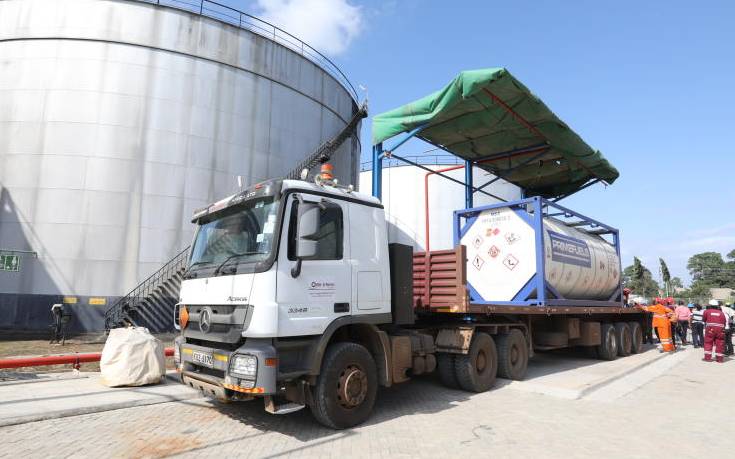×
The Standard e-Paper
Join Thousands Daily

Trucks of the first crude oil consignment from Lokichar,Turkana arrive at the Mombasa's Changamwe KPRL storage facility in Mombasa County on Thursday June 7, 2018. [Maarufu Mohamed,Standard]
Tullow Oil has issued a statement over Monday’s incident in which its convoy of trucks transporting crude oil from Lokichar to Mombasa was temporarily disrupted.